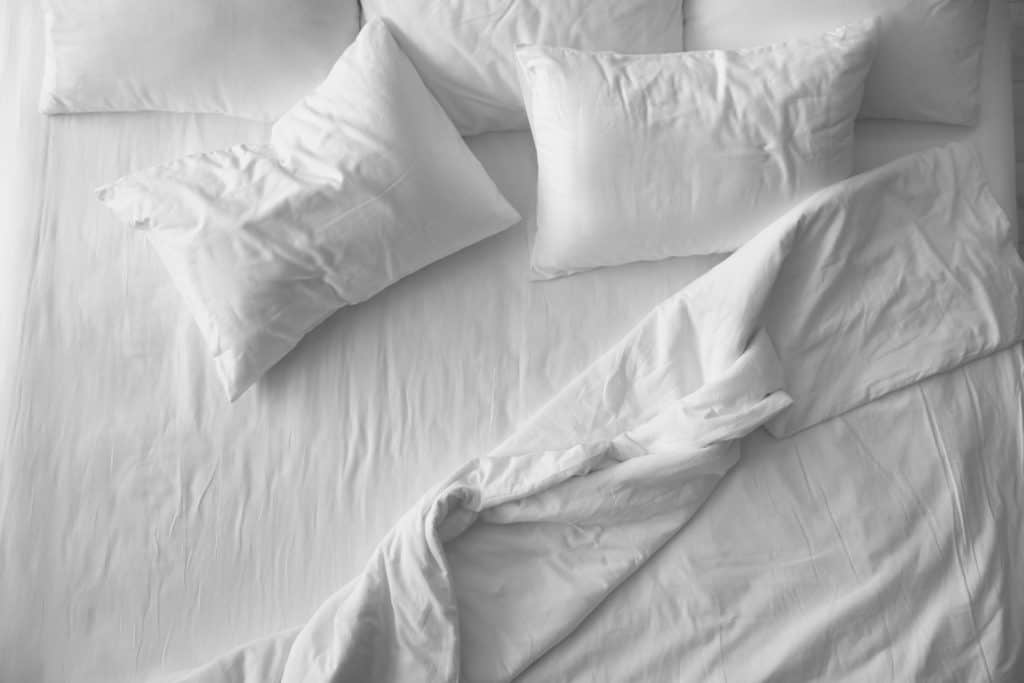Sleep, glorious sleep. Whether or not you get the recommended 8-9 hours a night, we all need a certain amount of it to allow the body to repair, restore and re-energize.
How much sleep a person needs can depend on many things- health condition, age and how active you are, are just some of the things that can count for needing more, or less sleep.
There are endless reasons as to why some people can suffer with sleep deprivation. Some (may we say the lucky ones) are able to nod off as soon as their heads hit the pillow, however for others it might not be so simple. There are lots of reasons why sleep can be a struggle:
- Sleep Apnoea: Sleep apnoea is when a person’s breathing stops and starts whilst asleep. The main symptoms of sleep apnoea include gasping or choking noises whilst asleep, loud snoring and feeling very tired during the day. Sleep apnoea is caused when the airways becoming relaxed and narrow whilst asleep; It is linked to things like obesity and getting older.
- Depression, anxiety and stress: Depression, anxiety, stress or other mental health conditions can allow the brain to wander and overthink on a nighttime. Even without a diagnosed mental health condition, worries and stress can also cause difficulty in falling asleep- studies suggest that the reason why overthinking occurs mainly at night, is because your brain has no distractions like it does through the day, thus a greater opportunity to focus more on your thoughts.
- Insomnia: Insomnia, is a sleep disorder in which people have trouble sleeping. Symptoms of insomnia include finding it hard to fall asleep, waking up several times during the night and feeling tired during the day. Insomnia can be improved by making changes to sleep habits, such as having a bedtime routine and not eating or drinking shortly before bed. Common causes of insomnia include stress, anxiety, too much noise at night, your bedroom being too hot or cold and drinks containing caffeine.
- Too much screen time right before bed: Nowadays, having a scroll before bed is inevitable. Anything is moderation tends to be OK, but the screen in our smart phones give off a type of blue hued artificial light, which the brain does not process very well before going to sleep. The blue light triggers our brain into staying more alert and awake, thus makes it longer to settle down and fall asleep.
Everyone is different- some people simply require more, or less sleep than others and some people take a shorter or longer while to fall sleep, not necessarily relating to any illness or health condition. If you don’t have any problems falling asleep, keep doing what you’re doing! But If you struggle to drift off, and counting sheep no longer makes the cut, there are some scientifically proven natural remedies that can help:
Natural sleep remedies
- Decreasing, or totally banning screen time at least one hour before bed: This is going to cause less disturbance when you do finally come to shut your eyes.
- Hot drinks or showers/baths close to bed time: Heat in any form is a relaxant, warmth releases endorphins which can make you feel content and relaxed just in time for bed.
- Although warmth is a relaxer, make sure your bedroom is not too hot: A common and often unnoticed sleep disturbance is your environment being too hot. Excessively hot room can raise your heart rate and result in an uncomfortable and disturbed sleep.
- Ensuring a totally dark sleeping environment: People who are scared of the dark, look away now! Studies show that darkness is essential to sleep. The absence of light sends a critical signal to the body that it is time to rest. Light exposure at the wrong times alters the body’s biological mechanism that regulates sleep-wake cycles—in ways that interfere with both the quantity and quality of sleep.
- Lavender and other sleep-inducing scents: Lavender works as an anxiolytic (an anxiety reliever) and as a sedative, to increase relaxation, calmness and help induce sleep. Lavender interacts with a neurotransmitter in the brain to help calm the brain and nervous system activity, reducing agitation, anger, aggression, and restlessness. How about making your own lavender bag, applying natural lavender scented facial creams or putting a few drops of lavender oil on your pillow or into your air diffuser.
Many sleep problems derive from stress and oftentimes can be overcome by natural remedies. Sleep is a vital part of a healthy lifestyle, so always be sure to prioritise your physical and mental health.
Contact us for more information.



